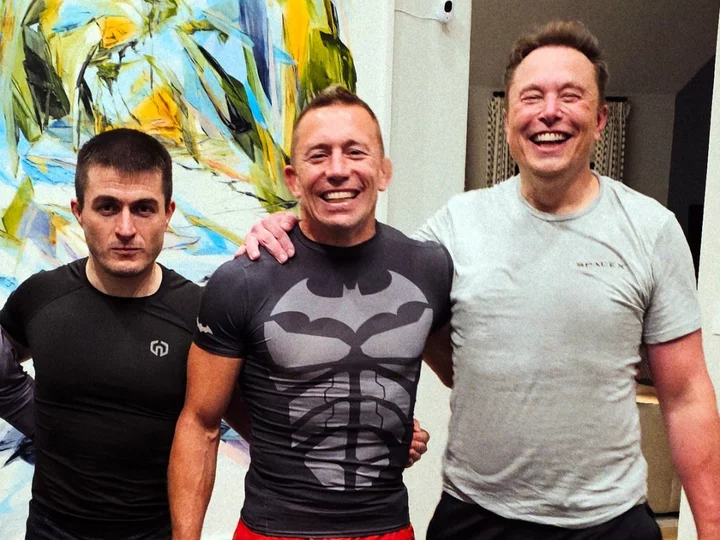
‘Rate limits’ and Twitter chaos: What exactly is Elon Musk doing?
Twitter has been plunged into chaos in recent days, amid new “rate limits” and rules that actually stop people from using the site. The changes have been dramatic enough that they have led to speculation that they could be the thing to finally doom Elon Musk’s takeover of the social network. What are the ‘rate limits’? It is a somewhat technical term for a complex process that has a simple effect: users are rationed on how many tweets they can see. If people and the apps they use make too many requests too often – in this case for tweets – then the service will stop providing them. On Twitter, the new rate limits are different depending on what kind of user is on: someone who pays for the premium “Twitter Blue” service will get more than a normal user, for instance. They are also changing all the time, with the limit being increased recently. Twitter has long had rate limits, which ensure that malicious actors cannot send huge number of requests to the site and bring it down, for instance. But they would previously only have been hit by people using specific tools, since they were much higher. What happens when you hit the limit? Users will see a warning telling them they have received the rate limit. The site will then stop working properly, because it will refuse to load any more tweets. Why has it happened? The official explanation is that Elon Musk is concerned about how many artificial intelligence companies are scraping posts from Twitter in order to feed to their systems and teach them more about how to use language. In an attempt to stop that, Mr Musk placed the limits to make it harder for that scraping to happen. But there is no proof that is actually the case. The problems at Twitter may well be infrastructural issues caused by the site’s engineering, and its lack of staff, that have made it incapable of serving normal requests. Or it might be a mix of the two. There is no doubt that the site is being scraped, but rate limits of this kind are an unusual way of responding to it, and other sites that are being scraped have not needed to do the same thing. Are there other changes? The other major change instituted recently by Elon Musk is to ban people who are not signed into the site from seeing posts. This is ostensibly for the same reason, since it means that scrapers cannot just gather up posts from the site from the outside. It already means that some things about Twitter are not working as they used to. If someone sends a tweet within a messaging app, for instance, then the posts’ preview won’t show, since the app cannot access the tweet. Will this change how people use Twitter? Almost certainly. Much of Twitter’s value lies in its high-profile and high-commitment users: the celebrities, organisations and big brands who use it to post, and the engaged users who follow them. That is much of what sustains its place in culture, even as it gets fewer users than much bigger social networks such as Facebook. The recent changes have directly antagonised those users. Big organisations cannot rely on tweets as a way for anyone to see what they’re posting, since users have to be logged in; engaged users cannot rely on being able to use the platform, since they are set to be rate limited. What’s more, the recent changes could cause problems for advertisers, given how important it is for users to stay engaged and see their posts. Companies are already using Twitter less for advertising, as a result of other controversies, and that may just continue. Is this the end? Some people have been predicting an end to Twitter since long before Elon Musk took it over; when he did, those predictions got louder and more regular, but they have still been largely wrong. It appears that no matter what Mr Musk does, people keep logging on and using the site. That might well be largely due to network effects: the idea that the value really comes from the number of people using the platform, which also makes it very difficult to create a new one. People might be unhappy on Twitter, but the network effect means they might feel lonely or that they are missing out if they move elsewhere. But all of that doesn’t mean that this time around won’t be the end. Certainly the latest problems have the most obviously problematic effect, of forcing Twitter’s most engaged users to not use the app, which might finally encourage them to go elsewhere. In the end, the discussion is often based on the idea that there will be some big moment that causes everyone to leave Twitter, or for the app to die. In fact, social networks have tended to decline slowly before they are finally shut down; something that might already be happening on Twitter. What are the alternatives to Twitter? Again, people have been trying to replace Twitter for years, for reasons including everything from protests against its content management rules to opposition to its centralised nature. Attempts to create a new Twitter have only increased since Elon Musk took over the original one. But they have almost always failed to take off. Network effects and the relative maturity of Twitter as a platform mean that they have always faced a challenge, and never really met it. As such there are a number of alternatives to Twitter. Notable among them are Mastodon, which is decentralised and has become perhaps the most discussed new alternative, and Bluesky, an effort to build a new kind of Twitter that originally began with the company. But the most promising alternative might be about to launch. Meta is launching Threads this week, an app linked to Instagram that aims to allow people to post text updates that might have the might to actually take over from Twitter. What is happening to TweetDeck? TweetDeck also went down along with Twitter over the weekend. It’s unclear how the two are connected, though they happened at the same time. Now Twitter has announced that TweetDeck is coming back. But it comes with some changes, and the most notable of them is that people will have to pay for Twitter Blue to get access to it. Read More Twitter to stop TweetDeck access for unverified users Meta’s Twitter alternative Threads to be launched this week How Elon Musk finally broke Twitter – and why it might just be the start Twitter rival Bluesky halts sign-ups after huge surge in demand Twitter is breaking more and more Twitter rival sees huge increase in users as Elon Musk ‘destroys his site’
2023-07-04 23:20

Scientists discover secret planet hiding in our solar system
There are eight planets in our solar system – plus poor old Pluto, which was demoted in 2006 – but what if there were more? Turns out that might be the case. Astronomers have calculated there is a 7 per cent chance that Earth has another neighbour hiding in the Oort cloud, a spherical region of ice chunks and rocks that is tens of thousands of times farther from the sun than we are. “It’s completely plausible for our solar system to have captured such an Oort cloud planet,” said Nathan Kaib, a co-author on the work and an astronomer at the Planetary Science Institute. Sign up to our free Indy100 weekly newsletter Hidden worlds like this are “a class of planets that should definitely exist but have received relatively little attention” until now, he said.. If a planet is hiding in the Oort cloud, it’s almost certainly an ice giant. Large planets like Jupiter and Saturn are generally born as twins. They have huge gravitational pulls of their own, however, and sometimes destabilise one another. That could have led to a planet to be nudged out of the solar system entirely – or exiled to its outer reaches, where the Oort cloud resides. “The survivor planets have eccentric orbits, which are like the scars from their violent pasts,” said lead author Sean Raymond, researcher at the University of Bordeaux’s Astrophysics Laboratory. That means that the Oort cloud planet could have a significantly elongated orbit, unlike the near-perfect circle Earth tracks around the sun. Trouble is, when things are that far away, they’re pretty difficult to spot. “It would be extremely hard to detect,” added Raymond. “If a Neptune-sized planet existed in our own Oort cloud, there’s a good chance that we wouldn’t have found it yet,” said Malena Rice, an astronomer at MIT not involved in this work. “Amazingly, it can sometimes be easier to spot planets hundreds of light-years away than those right in our own backyard.” Time to crack out the telescope. Have your say in our news democracy. Click the upvote icon at the top of the page to help raise this article through the indy100 rankings.
2023-07-04 23:15

Twitter to put TweetDeck behind a paywall
Another controversial change is coming to Twitter. Only verified users will soon be able to access TweetDeck, the dashboard that lets users views multiple different timelines, the platform tweeted Monday.
2023-07-04 23:15

AI takes just five hours to design functional computer
Researchers in China have developed an artificial intelligence tool capable of designing a working computer in under five hours. The team of 19 computer scientists from five different institutions made the AI breakthrough after setting out to prove that machines can create computer chips in a similar way to humans. The feat was performed 1,000 times faster than a human team could have achieved it, the researchers claimed, marking a major step towards building self-evolving machines. “Design activity... distinguishes humanity from other animals and traditional machines, and endowing machines with design abilities at the human level or beyond has been a long-term pursuit,” the scientists wrote in a paper detailing their research. “We present a new AI approach to automatically design a central processing unit (CPU), the brain of a computer, and one of the world’s most intricate devices humanity has ever designed.” The project involved the layout of an industrial-scale RISC-V CPU, capable of running the Linux operating system and achieving an accuracy of 99.99 per cent in validation tests. The AI bypassed the manual programming and verification process of the typical design cycle, which the researchers said “consumes more than 60-80 per cent of the design time and resources” of human teams. The AI was also able to autonomously make discoveries involving computer design, uncovering something called the von Neumann architecture, first invented in 1945. The overall performance of the CPU is relatively modest compared to modern computers, with the researchers saying it can perform at a similar level to a 1991 Intel 80486SX CPU. Developing the AI approach, however, has the potential to “reform the semiconductor industry by significantly reducing the design cycle”, the researchers said. The research is detailed in a study, titled ‘Pushing the limits of machine design: Automated CPU design with AI’. Leading AI chip maker Nvidia has previously used artificial intelligence to optimise its computer chip designs, publishing a new approach to AI-powered chip design in March that could significantly improve the cost and performance of CPUs. Read More 10 ways AI will change the world – from curing cancer to wiping out humanity Harvard’s new computer science teacher is a chatbot Google’s DeepMind unveils AI robot that can teach itself unsupervised Robots can now learn new skills like picking up knives by watching YouTube videos
2023-07-04 22:23

Scientists discover that megaladon's went extinct because of themselves
Scientists believe they have discovered the cause of the megalodon's extinction – and no, it’s not Jason Statham. Experts have been conducting research on fossils of teeth from the biggest species of shark the world has ever seen, which went extinct around 3.6 million years ago and measured at least 15 metres long. Research published in the journal Proceedings of the National Academy of Sciences explains that the animal was actually partially warm-blooded. Unlike most cold-blood sharks, the body temperature is thought to have been around 27 degrees. The temperature is higher than the sea temperatures around the time. Sign up to our free Indy100 weekly newsletter Study co author Robert Eagle, who is professor of marine science and geobiology at UCLA, said [via CNN]: “We found that O. megalodon had body temperatures significantly elevated compared to other sharks, consistent with it having a degree of internal heat production as modern warm-blooded (endothermic) animals do.” They were able to prove that the animals were warm-blooded by analysing how carbon-13 and oxygen-18 isotopes were closely bonded together in the fossilised teeth. Senior study author Kenshu Shimada is a paleobiologist at DePaul University in Chicago, who said: “A large body promotes efficiency in prey capture with wider spatial coverage, but it requires a lot of energy to maintain. “We know that Megalodon had gigantic cutting teeth used for feeding on marine mammals, such as cetaceans and pinnipeds, based on the fossil record. The new study is consistent with the idea that the evolution of warm-bloodedness was a gateway for the gigantism in Megalodon to keep up with the high metabolic demand.” The fact it was warm-blooded means that regulating body temperature could have been the cause of its eventual demise. The Earth was cooling when the animal went extinct, which could have been a critical factor. “The fact that Megalodon disappeared suggests the likely vulnerability of being warm-blooded because warm-bloodedness requires constant food intake to sustain high metabolism,” Shimada said. “Possibly, there was a shift in the marine ecosystem due to the climatic cooling,” causing the sea level to drop, altering the habitats of the populations of the types of food megalodon fed on such as marine mammals and leading to its extinction. “One of the big implications for this work is that it highlights the vulnerability of large apex predators, such the modern great white shark, to climate change given similarities in their biology with megalodon,” said lead study author Michael Griffiths, professor of environmental science, geochemist and paleoclimatologist at William Paterson University. Have your say in our news democracy. Click the upvote icon at the top of the page to help raise this article through the indy100 rankings.
2023-07-04 21:54

Dexcom G7 Receives Health Canada Approval: Next-Generation Continuous Glucose Monitoring System With Unmatched Accuracy Coming to Canadians
BURNABY, British Columbia--(BUSINESS WIRE)--Jul 4, 2023--
2023-07-04 20:55

AI is already linked to layoffs in a surprising industry
Many have raised alarms about the potential for artificial intelligence to displace jobs in the years ahead, but it's already causing upheaval in one surprising industry where workers once seemed invincible: tech.
2023-07-04 20:50

Meta takes aim at Twitter with new Threads app
The rivalry between Mark Zuckerberg and Elon Musk has just kicked up a notch.
2023-07-04 19:17

Elon Musk trains with UFC legend ahead of Mark Zuckerberg fight
Elon Musk has taken part in a training session with former UFC champion Georges St-Pierre ahead of a potential bout with Mark Zuckerberg. The two tech billionaires agreed to a fight last month after Mr Musk accused the Meta chief of ripping off Twitter with a new platform called Threads. “Up for a cage match,” the Twitter owner wrote, to which Mr Zuckerberg replied: “Send me location.” Both men have since sparred with podcaster and jiu jitsu enthusiast Lex Fridman, who joined Mr Musk on Monday in his first training session with Mr St-Pierre. The Canadian fighter is considered to be one of the greatest ever mixed martial artists, winning titles in two weight divisions before retiring in 2019. They were also joined by John Danaher, a grappling coach who is among the best regarded trainers in Brazilian Jiu-Jitsu and has coached a number of world champions. “Had a great training session with Elon Musk, Georges St-Pierre, and John Danaher last night,” Mr Fridman tweeted. “Everything about this was epic!” Mr Musk replied: “Really fun!” The obvious conclusion is that I need a *lot* more training.” Prior to proposing the fight, Mr Musk claimed to “almost never work out”, while the Facebook founder has been practising jiu-jitsu since 2022. Earlier this year, Mr Zuckerberg competed in a martial arts tournament, winning “some medals” in his weight class. His potential opponent holds a height and weight advantage over him, however Mr Musk is also 13 years older than his tech rival. Following his training session with the SpaceX and Tesla boss, Mr Fridman said he was “extremely impressed” with his “strength, power, and skill, on the feet and on the ground”. Mr Fridman shared photos of his sparring session with Mr Musk, however no video of his training has yet emerged. UFC trainer Javier Mendez recently predicted that Mr Zuckerberg would win the fight, given his apparent fitness and experience. “The big advantage Zuckerberg has over Elon is that he’s actively training and he’s more of a dog right now, because he entered a jiu-jitsu tournament, so that tells me a lot about him,” he said. “All things considered, Zuckerberg is way ahead of Musk, but you won’t really know until you see what Musk possesses... I would want Musk to think about ways to prevent takedowns. But you can’t avoid a takedown just by trying to avoid it; you have to avoid it by striking.” No date or venue has been set for the fight. Read More Twitter to stop TweetDeck access for unverified users How Elon Musk finally broke Twitter – and why it might just be the start Twitter rival Bluesky halts sign-ups after huge surge in demand Elon Musk confirms cage fight with Mark Zuckerberg
2023-07-04 18:55

emnify Welcomes Former Deutsche Telekom IoT CPO, Christopher Ruettgers, to Drive Product Strategy
BERLIN--(BUSINESS WIRE)--Jul 4, 2023--
2023-07-04 18:53

China restricts exports of high-tech metals in a slap at Washington ahead of Yellen's visit
China has imposed export curbs on two metals used in computer chips and solar cells, expanding a squabble with Washington over high-tech trade ahead of Treasury Secretary Janet Yellen’s visit to Beijing this week
2023-07-04 18:27

Meta is set to take on Twitter with a rival app called Threads
Meta is poised to launch a new app that appears to mimic Twitter in a direct challenge to the social media platform owned by billionaire Elon Musk
2023-07-04 18:22
You Might Like...

Brandon Fugal Joins OmniTeq Board of Directors

HSBC Tests Quantum Tech in London to Guard Against Future Hacks

Post founder Noam Bardin is on a mission to reinvent social media and break Big Tech’s destructive dominance

New Pro Audio Family of Converters from Cirrus Logic Delivers True Transparent Audio Experience

Heart transplant woman’s daughter twice saved her life using Alexa

Return-to-Office Stalwart Austin Increasingly Working From Home

Exclusive-OpenAI investors considering suing the board after CEO's abrupt firing -sources

New brain technology helps paralysed man with severe spine injury walk again
